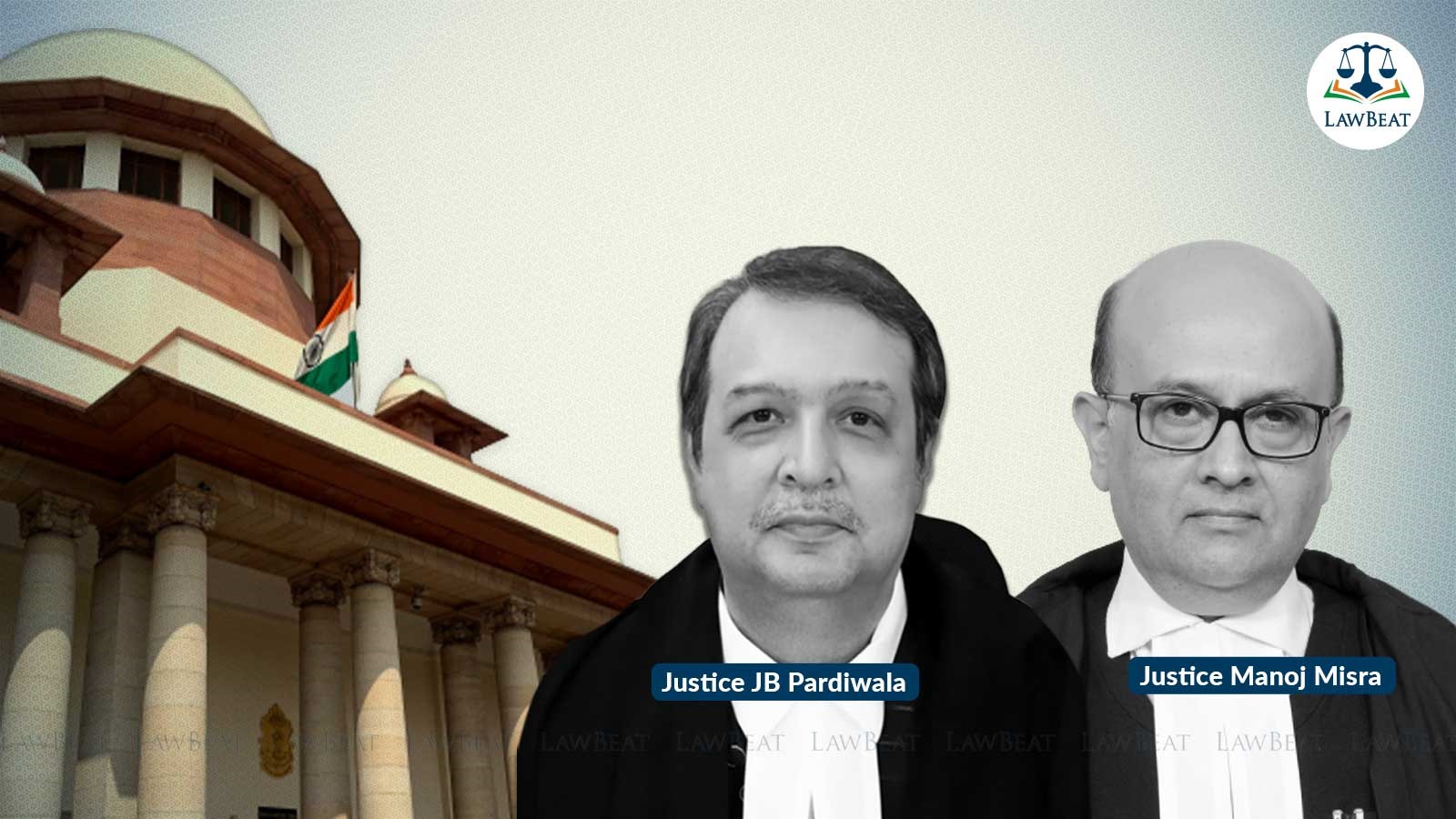Sad That Courts Still Can't Distinguish Criminal Breach of Trust, Cheating: SC

SC bench said for cheating, criminal intention is necessary at the time of making a false or misleading representation i.e., since inception, while in criminal breach of trust, mere proof of entrustment is sufficient
The Supreme Court on August 23, 2024 said that the Indian Penal Code remained in force for 162 years until replaced by Bharatiya Nyaya Sanhita but it is indeed very sad to note that even after these many years, the courts have not been able to understand the fine distinction between criminal breach of trust and cheating.
"Both offences are independent and distinct. The two offences cannot coexist simultaneously in the same set of facts. They are antithetical to each other. The two provisions of the IPC (now BNS, 2023) are not twins that they cannot survive without each other," a bench of Justices J B Pardiwala and Manoj Misra said.
The court opined that when dealing with a private complaint, the law enjoins upon the magistrate a duty to meticulously examine the contents of the complaint so as to determine whether the offence of cheating or criminal breach of trust as the case may be is made out from the averments made in the complaint.
"The magistrate must carefully apply its mind to ascertain whether the allegations, as stated, genuinely constitute these specific offences," the bench said.
In contrast, when a case arises from a FIR, this responsibility is of the police – to thoroughly ascertain whether the allegations levelled by the informant indeed falls under the category of cheating or criminal breach of trust, the court pointed.
"Unfortunately, it has become a common practice for the police officers to routinely and mechanically proceed to register an FIR for both the offences i.e. criminal breach of trust and cheating on a mere allegation of some dishonesty or fraud, without any proper application of mind. It is high time that the police officers across the country are imparted proper training in law so as to understand the fine distinction between the offence of cheating viz-a-viz criminal breach of trust," the bench added.
The court directed the Registry to send one copy each of the present judgment to the Principal Secretary, Ministry of Law & Justice, Union of India and also to the Principal Secretary, Home Department, Union of India.
The court set aside the Allahabad High Court's order which declined to quash the process issued against Delhi Race Club (1949) Ltd and others by Additional Chief Judicial Magistrate, Khurja, Bulandshahar for the offences of criminal breach of trust, cheating and criminal conspiracy under Sections 406, 402 and 120 B respectively of the Indian Penal Code.
A complaint was filed by one Vipin Kumar Agarwal, the owner of a firm Agarwal Udyog, New Mandi, Khurja, alleging non payment of an amount of Rs 9,11,434 towards the sale of horse grains and oats over a period of time.
The apex court felt that the continuation of the criminal proceeding would be nothing but abuse of the process of law.
"If it is the case of the complainant that a particular amount is due and payable to him then he should have filed a civil suit for recovery of the amount against the appellants herein. But he could not have gone to the court of Additional Chief Judicial Magistrate by filing a complaint of cheating and criminal breach of trust," the bench said.
The court pointed out that there is no manner of any doubt whatsoever that in case of sale of goods, the property passes to the purchaser from the seller when the goods are delivered. Once the property in the goods passes to the purchaser, it cannot be said that the purchaser was entrusted with the property of the seller. Without entrustment of property, there cannot be any criminal breach of trust, it added.
"Thus, prosecution of cases on charge of criminal breach of trust, for failure to pay the consideration amount in case of sale of goods is flawed to the core. There can be civil remedy for the non-payment of the consideration amount, but no criminal case will be maintainable for it," the bench said.
The court highlighted that the offence of breach of trust and cheating involve dishonest intention, yet they are mutually exclusive and different in basic concept.
"There is a distinction between criminal breach of trust and cheating. For cheating, criminal intention is necessary at the time of making a false or misleading representation i.e., since inception. In criminal breach of trust, mere proof of entrustment is sufficient. Thus, in case of criminal breach of trust, the offender is lawfully entrusted with the property, and he dishonestly misappropriated the same," the bench said.
"Whereas, in case of cheating, the offender fraudulently or dishonestly induces a person by deceiving him to deliver any property. In such a situation, both the offences cannot co-exist simultaneously," the bench said.
The court said the case of the complainant was plain and simple. "He says that the price of the goods sold by him has not been paid. Once there is a sale, Section 406 of the IPC goes out of picture. According to the complainant, the invoices raised by him were not cleared. No case worth the name of cheating is also made out", it added.
Case Title: Delhi Race Club (1949) Ltd & Ors Vs State of Uttar Pradesh & Anr
